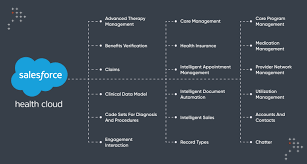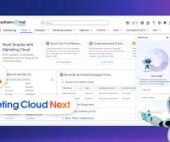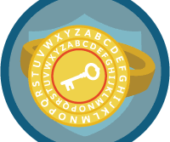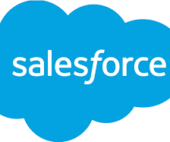Empower Your Healthcare Team with Salesforce Health Cloud
Equip your healthcare team with comprehensive 360-degree views that help connect and engage every patient, member, employee, and partner. Explore Salesforce Health Cloud
Explore Health Cloud
Understanding the capabilities of this platform is the first step to transforming your organization’s patient management. Let’s explore what Health Cloud offers to various types of healthcare organizations.
Introducing Salesforce Health Cloud: A CRM Solution for Patient Management
Over 600 companies, including industry leaders like Lilly, Pacific Clinics, United Healthcare, Progyny, Stanley Healthcare, and Humana, trust Salesforce Health Cloud for their patient management needs. As the healthcare industry rapidly evolves, effective patient information management is essential. This insight looks into Salesforce Health Cloud’s capabilities, features, integration options, and benefits, including its security architecture.
What is Health Cloud?
Salesforce Health Cloud is a cloud-based technology designed specifically for the healthcare industry. It centralizes patient information, giving healthcare professionals a complete view of patient records, enabling more effective treatments and better patient care.
Key Capabilities of Salesforce Health Cloud
Salesforce Health Cloud is a robust platform offering key capabilities such as:
- Patient 360: Gain a real-time, comprehensive view of each patient’s medical history, treatments, and outcomes, empowering informed decision-making and enhanced care.
- Patient Management: Access a complete overview of patient data, including medical history, treatments, and care plans, facilitating easy tracking and collaboration among healthcare teams.
- Care Coordination: Improve care coordination by connecting healthcare professionals, caregivers, and patients, ensuring everyone is informed and involved.
- Case Management: Streamline workflows and automate processes with Health Cloud’s case management tools, ensuring timely resolution of issues and efficient management.
- Health Data Integration: Integrate Health Cloud with various healthcare systems, such as EHRs and diagnostic tools, to consolidate data from multiple sources and provide a holistic view of patient health.
- Analytics and Insights: Leverage robust analytics to gain insights from patient data, identify trends, measure outcomes, and make data-driven decisions to improve patient care.
- Operational Efficiency: Enhance efficiency by automating workflows, reducing manual data entry, and aiding in compliance management and performance tracking.
- Clinical Decision Support: Connect electronic health records (EHRs) with other clinical systems and provide tools like drug interaction checkers and clinical guidelines to support informed clinical decisions.
- Population Health Management: Analyze patient data to identify trends and patterns, enabling better outcomes and cost reduction.
- Integration with Other Salesforce Products: Achieve a seamless experience by integrating Health Cloud with other Salesforce products, such as marketing and CRM tools.
- Telehealth and Remote Monitoring: Support virtual consultations, remote patient monitoring, and secure video conferencing to extend care beyond traditional clinical settings.
- Security and Compliance: Prioritize security and compliance with industry standards such as HIPAA to safeguard sensitive patient information.
Salesforce in the Healthcare Industry
Salesforce is increasingly popular among healthcare organizations for several reasons:
- Improved Collaboration: Salesforce enhances collaboration among care teams, leading to better patient-provider interactions and improved health outcomes.
- Adaptability: Salesforce is highly adaptable, accommodating various healthcare use cases and fostering innovation.
- Patient Management: Salesforce’s healthcare CRM, like Health Cloud, offers a 360-degree view of patients, enhancing patient relationship management and processes.
- Connectivity: Salesforce Health Cloud connects siloed systems, improving care coordination and communication.
- Cost Reduction: Salesforce helps reduce operating costs by streamlining processes and improving efficiency, offering solutions like Salesforce Marketing Cloud for patient acquisition and retention strategies.
Salesforce Health Platform Features
Salesforce Health Cloud offers three main sets of features:
- Data Privacy, Protection, and Integration: Salesforce Shield, a part of Salesforce DXP, includes tools like Shield Platform Encryption, Event Monitoring, and Field Audit Trail to ensure the security and compliance of patient data.
- 360-Degree View of Patient Data: Healthcare professionals have a comprehensive view of patients, including profiles, health records, timelines, and treatment plans, all in one place.
- Care Team Productivity: Health Cloud enhances care team productivity by providing tools and insights into a patient’s home life, needs, and goals, enabling personalized care.
Salesforce Health Cloud Architecture
The architecture of Salesforce Health Cloud includes:
- Salesforce Health Cloud: The core system for managing patient care, offering features like appointment scheduling and care coordination.
- Middleware: Integrates Health Cloud with other systems, including EMRs and external scheduling systems.
- REST Calls: Facilitates communication between different system components.
- HL7: A standard for healthcare data exchange.
Salesforce Health Cloud Security
Salesforce Health Cloud is designed to securely manage healthcare data, featuring:
- Platform Encryption: All data is encrypted at rest.
- Event Monitoring: Tracks all user activity for security auditing.
- Field Audit Trail: Monitors changes to data fields for investigating data breaches.
- Role-based Access Control (RBAC): Controls access to sensitive data.
- Two-factor Authentication (2FA): Adds an extra layer of security to user accounts.
- Inpatient Management: Optimize inpatient services with real-time visibility into patient status and medical records.
- Care Plan: Empower care teams to collaboratively create, monitor, and adjust comprehensive patient care plans.
- Care Team: Facilitate effective communication and coordination among care team members.
- Home Plan: Extend care beyond the hospital with home-based care plans.
- Referral Management: Enhance the efficiency of patient referrals to specialists.
- Doctor Verification: Ensure trust by verifying the credentials of medical practitioners.
- Ayushman Bharat Yojana Integration: Facilitate integration with India’s national health insurance scheme.
- Discharge Summary: Automate the generation of comprehensive discharge summaries to promote smooth care transitions.
Revolutionizing Healthcare Delivery with Salesforce Health Cloud
Salesforce Health Cloud is designed for healthcare organizations to automate processes and provide personalized patient care. Since its launch in 2016, Health Cloud has evolved to address the complexities of the healthcare industry, including the introduction of Customer 360 for Health, an AI-driven healthcare solution.
Why Choose Salesforce Health Cloud?
Salesforce Health Cloud connects healthcare teams to ensure that patients receive the right care, supported by multi-layered security to protect sensitive patient data. It integrates clinical and non-clinical patient data, streamlining workflows and enhancing patient satisfaction.
Top Features of Salesforce Health Cloud
Key features include Patient 360, Care Plans, Care Coordination, Health Timeline, and Einstein Analytics for Healthcare, among others. Salesforce has also introduced AI-powered innovations under the Patient 360 for Health initiative, enhancing patient care and operational efficiency.
Integration with MuleSoft
Salesforce Health Cloud’s integration with MuleSoft allows organizations to connect with existing healthcare systems, ensuring accurate and up-to-date patient information, unlocking the full potential of their data, and improving decision-making.
Conclusion
Salesforce Health Cloud is more than just a platform—it’s a comprehensive solution for managing doctor-patient interactions, recordkeeping, and delivering personalized care. By leveraging Health Cloud, healthcare organizations can transform patient experiences, streamline processes, and ensure data security and compliance, positioning themselves for a brighter future in healthcare.













